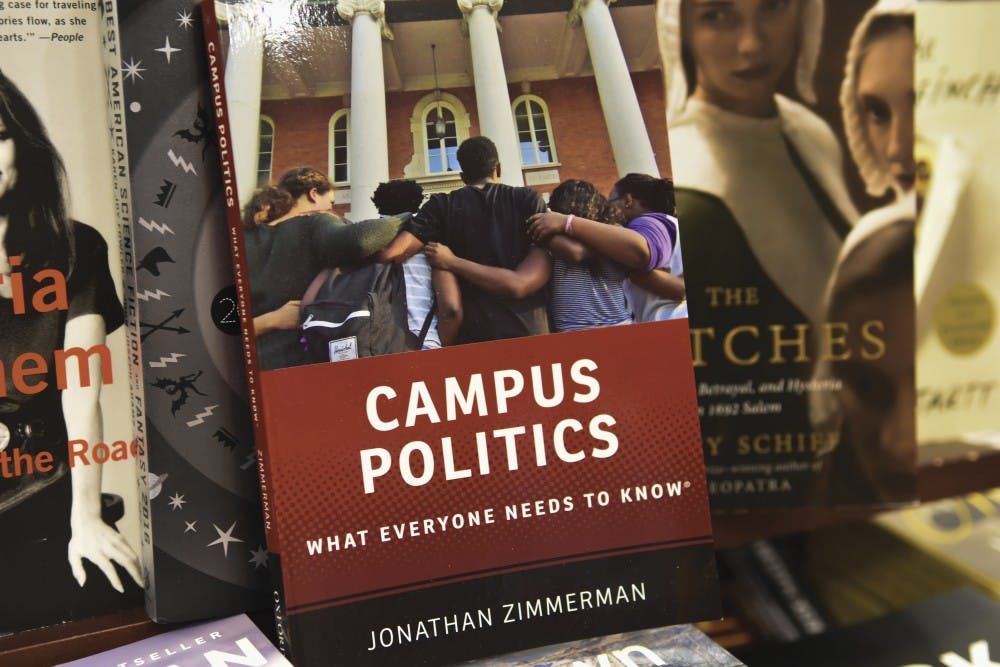Most college professors have a passing familiarity with the protests that so frequently adorn their campus, but Graduate School of Education professor Jonathan Zimmerman has been studying the demonstrations across history.
Published on Sept. 7, his book, “Campus Politics: What Everyone Needs to Know,” puts student protests, both current and former, in their political and social context.
Zimmerman said that there are similarities between today’s protests and the ones immortalized as part of the Civil Rights Movement and antiwar period, but noted there are different idioms and sets of demands to the protests.
Recent protests use concepts like trigger warnings, safe spaces and microaggressions, all of which are rooted in racist or sexist remarks that affect the individual psyche.
“How can you argue with someone who feels pained or traumatized?” Zimmerman asked.
A relatively new relationship has also developed between student protesters and the administration when handling social justice issues on campus. In late 2015, administrators largely avoided challenging the protesters, he said, even as schools faced campus uproars over racial issues.
Students at Yale University protested an email that was sent by an administrator stating that Halloween costumes that some view as cultural appropriation were protected under free speech, while students at Princeton University staged a 32-hour protest and sit-in calling for the University to revisit how it treats President Woodrow Wilson’s legacy.
“Students typically demand more layers of administration, which they invest with ever greater powers of bureaucratic control,” Zimmerman wrote.
However, these administrative policies haven’t been shown to increase diversity and inclusion, Zimmerman said. In his book, he wrote that “it’s time for students to step up and start leveraging their own power instead of investing yet more of it in university administrations.”
In his book, Zimmerman gives multiple examples of what this could look like:
If a fraternity holds a racist party, instead of demanding the college president kick the fraternity off-campus, students should boycott and protest every event at the fraternity. If students dislike something in the school newspaper, they shouldn’t steal papers or ask the university to cut funding, but just produce journals and blogs and circulate them on and off campus as alternatives.
In the end of the book, Zimmerman noted the importance of maintaining free speech on college campuses, where a growing number of students and professors say they “self-censor for fear of repercussions” while also understanding the needs of minority students, who have often been neglected and dismissed.
Zimmerman quoted former Secretary of State Hillary Clinton from her graduation speech from Wellesley College. She said campus politics are a great adventure:
“And we are, all of us, exploring a world that none of us really understands.”









